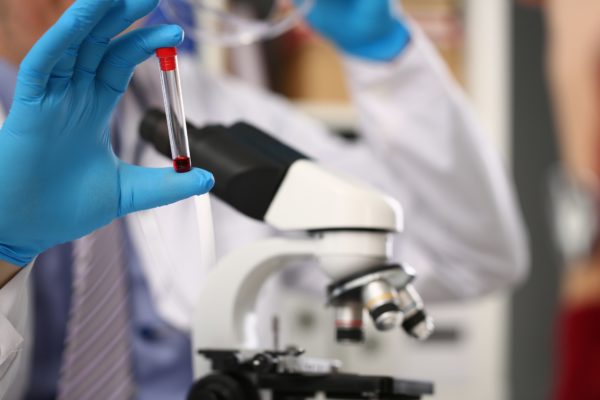
Etranacogene dezaparvovec, a gene therapy for haemophilia B, increased production of the blood clotting protein factor IX in a study among 52 patients. Presented at the late-breaking abstract session of ASH 2020, the phase III HOPE-B trial is the largest haemophilia B gene therapy trial to date and included patients with antibodies specific to the gene therapy vector, finding that the presence of these antibodies did not confer an increased risk of adverse events, or a decrease in efficacy of treatment, up to a specific antibody titre.
Containing a codon-optimised Padau variant of human factor IX (FIX) and delivered via an adeno-associated virus serotype 5 (AAV5) viral vector, a single-dose of this gene therapy was able to confer a mean FIX activity of 37.2% in 54 patients at 26 weeks follow-up, an activity comparable to normal levels. Furthermore, no correlation was found between pre-existing anti-AAV5 antibodies and FIX activity, up to a titre of 678.2. As a result, 96.3% of patients were able to stop routine prophylaxis. These exciting results suggest that a single dose of this therapy demonstrates long-term efficacy, enabling the patient to produce their own, functional FIX, eliminating the need for FIX replacement therapy.
Anti-AAV5 antibodies did not preclude efficacy
Although manageable, the treatment for haemophilia B is expensive, costing up to several hundred thousand dollars per year in some healthcare systems. Patients are also reliant on this therapy, requiring regular weekly injections, which can affect their quality of life.
“Most patients with hemophilia B are bound to a prophylactic factor regimen of one to two intravenous infusions per week from birth through the rest of their life,” says senior study author Steven W. Pipe, MD, of the University of Michigan, Ann Arbor. “Gene therapy offers the chance to liberate patients from the burden of their prior treatments, allowing for spontaneity and the freedom to do more in day-to-day life.”
Gene therapy works by using a harmless viral vector to ‘inject’ healthy DNA into cells, replacing the faulty DNA and enabling the patient to produce their own FIX, instead of relying on a regular, external source. Although gene therapy has shown promise in earlier phase trials, this is the first phase III trial in a large-scale cohort that included patients with anti-AAV5 antibodies. Patients with these antibodies have classically been excluded in similar, past trials, fearing that these antibodies would block cellular uptake of the vector, or trigger a dangerous immune response. Arguably as important as the reported efficacy, the trial found no evidence of these antibodies precluding successful FIX activity. Although ongoing for another 5 years of long term follow-up, these initial results are promising enough to support the clinical use of this therapy in haemophilia B patients.
References
American Society of Hematology. Gene Therapy for Hemophilia B Found Safe and Effective in First Phase III Trial. 2020 [online]. Available here: https://www.hematology.org/newsroom/press-releases/2020/gene-therapy-for-hemophilia-b-found-safe-and-effective-in-first-phase-iii-trial.
Pipe SW, et al., First Data from the Phase 3 HOPE-B Gene Therapy Trial: Efficacy and Safety of Etranacogene Dezaparvovec (AAV5-Padua hFIX variant; AMT-061) in Adults with Severe or Moderate-Severe Hemophilia B Treated Irrespective of Pre-existing Anti-Capsid Neutralizing Antibodies. Presented at ASH 2020; Abstract LBA-6.